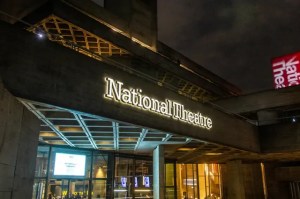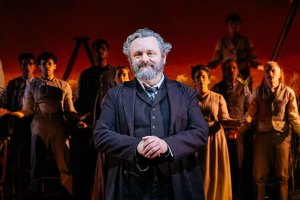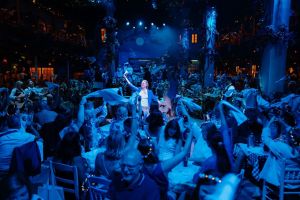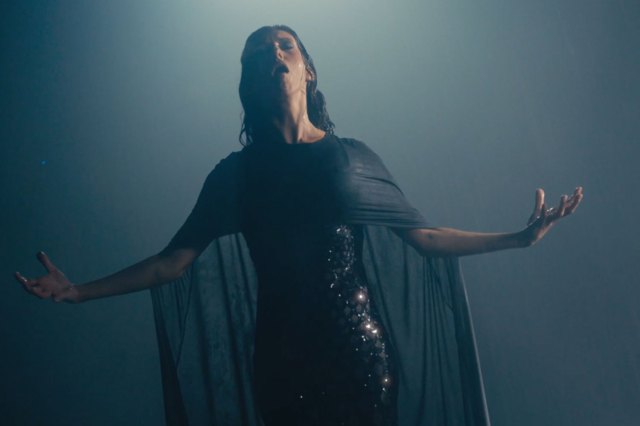Mozart, Salieri & Rimsky-Korsakov
Jette Parker Young Artists at the Linbury Studio
extraordinary feat but if you want proof that Mozart actually was once a child,
his singspiel Bastien und Bastienne provides it. Apart from the very opening which makes us
think we’re in for a performance of Beethoven’s Eroica
Symphony (a case of a good tune not gone to waste), it’s made up of brief airs, dull and thankfully briefer recitatives and the most naive of
scenarios. What do you expect from a 12
year old, you might ask, but shortly afterwards he composed the much more
sophisticated La finta semplice and by 14 the
near-masterpiece Mitridate.
Genius learns fast, it seems.
Pedro Ribeiro avoids any sense of
tea-set cosiness in this Jette Parker Young Artists showcase by setting this
simple tale of shepherds, shepherdesses and their relationship problems on an
Eastern European railway track. It’s an
imaginative staging, let down by the clumsiest possible comedy playing. The singing (Dusica Bijelic, David Butt
Philip and and Jihoon Kim) is altogether more competent, although the
material’s hardly that demanding. It’s
not an ideal vehicle for showing off the Young Artists’ talents.
The truth in the cliché that
comedy is more difficult than tragedy (or is it just that comedy is difficult
when you don’t know how to do it?) is evident with the second half of the evening.
Rimsky-Korsakov’s 45 minute Mozart and Salieri, also directed
by Ribeiro (co-designing with Sophie Mosberger), is a much stronger offering.
Many people are familiar with the
story (myth?) of the two composers’ rivalry from Peter Shaffer’s play
Amadeus, which was in part based on Rimsky-Korsakov’s mini-opera,
as well as the Pushkin short play which provided the libretto. The work is under-developed but crams in an
awful lot of the drama that Shaffer made so vivid and, handled as effectively
as it is here, it’s highly affecting.
Instead of the familiar 18th
Century costumes, this Antonio and Wolfgang are besuited toffs in what could be
a story of jealousy and intrigue amongst bankers. Men in suits against a starkly lit black
background with the simplest of props makes for an arresting visual. Mozart playing keyboard on a horizontal beam
of light is a moment of inspiration.
Ashley Riches holds the stage expertly
with Salieri’s long opening monologue while Pablo Bemsch’s Mozart is no
gibbering wretch of popular fancy but a doleful, doe-eyed victim led blindly to
death by petty treachery. Both sing
superbly.
The technique of puppets is a
little over-used in the opera house but it works well here and there’s a
haunting snatch of the great Requiem from an anonymous chorus of men (and
women) in black. Michele Gamba and Paul
Wingfield alternate conducting and continuo duties and the Southbank Sinfonia
provide a sprightly soundtrack.
– Simon Thomas












